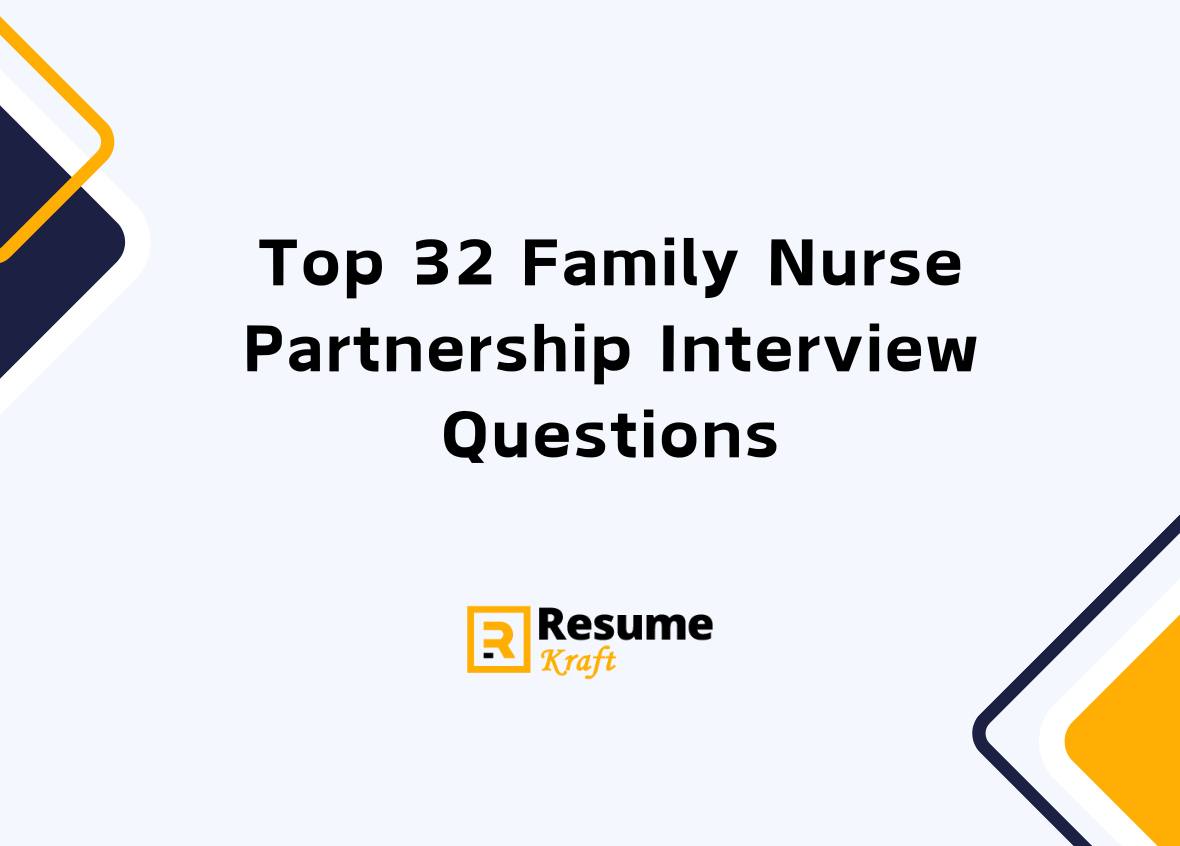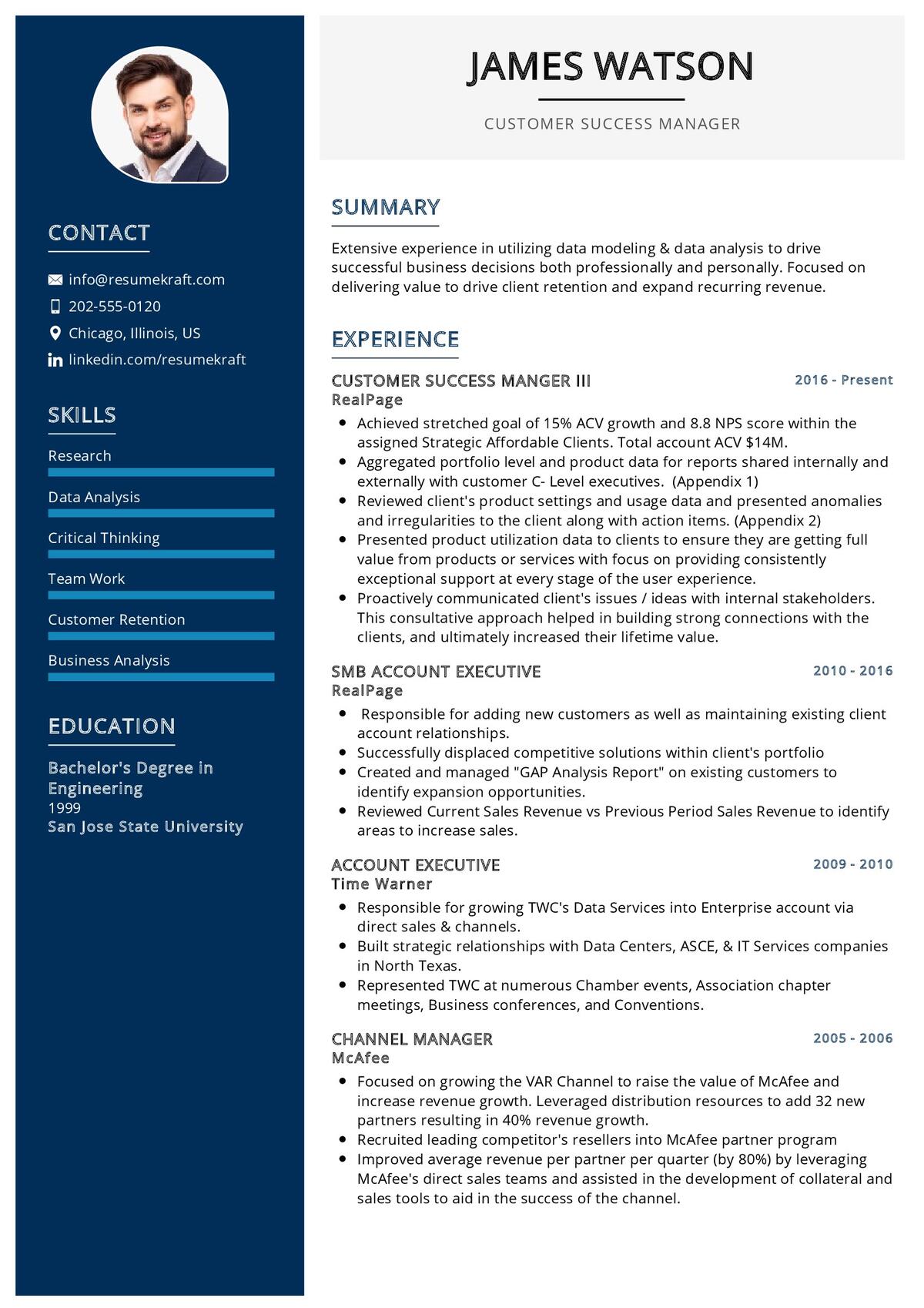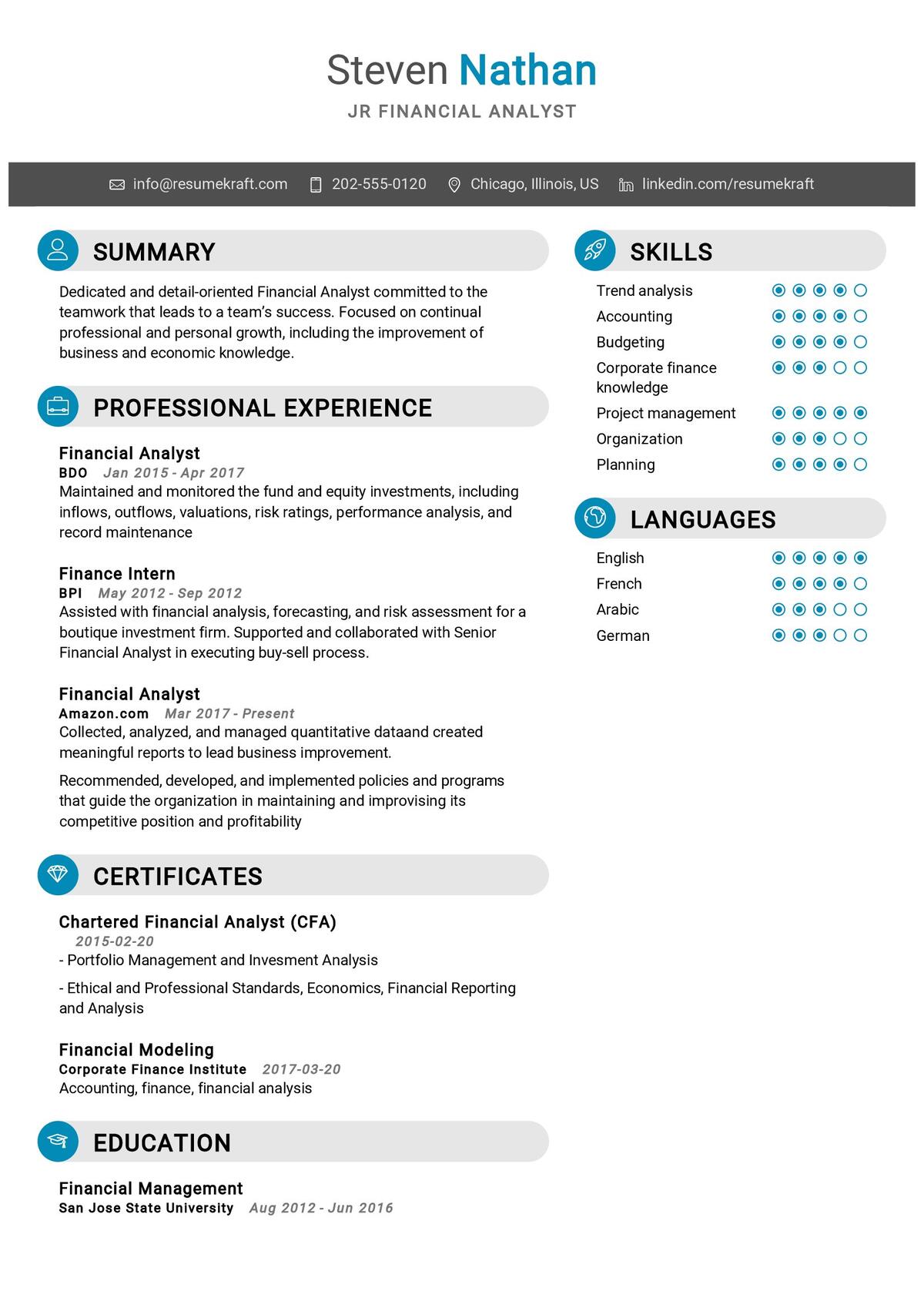
The Family Nurse Partnership (FNP) is a vital program aimed at providing young first-time mothers with the support they need to ensure the well-being of their babies and their own personal development. Nurses in the Family Nurse Partnership play a crucial role in helping new mothers navigate the challenges of parenthood by offering tailored guidance, education, and emotional support. If you’re preparing for a Family Nurse Partnership interview, it’s important to be ready for questions that assess your clinical skills, interpersonal abilities, and commitment to the core mission of the FNP program. This article will outline the top 32 interview questions you may encounter, along with suggested answers and explanations to help you prepare effectively.
Top 32 Family Nurse Partnership Interview Questions
1. Can you tell us about your background and experience in nursing?
A strong candidate for an FNP role will have a solid foundation in nursing, particularly in maternal and child health. When answering, discuss your education, work history, and any specialized training that makes you a good fit for this position. Highlight any experience you’ve had working with young mothers or in community health settings.
Explanation
This question aims to assess your professional qualifications and suitability for the role. The interviewer wants to understand your journey and how your skills align with the needs of the FNP program.
2. Why are you interested in working for the Family Nurse Partnership?
This question allows you to demonstrate your passion for the FNP’s mission. Share why you feel drawn to this program and how you believe you can contribute. Focus on the meaningful impact you hope to make in the lives of young mothers and their children.
Explanation
The interviewer wants to gauge your motivation for applying to the FNP. They are looking for candidates who are truly committed to making a difference.
3. How do you build rapport with young mothers who may be nervous or unsure about receiving help?
Building trust is key in the FNP program. Discuss techniques you use to create a safe and non-judgmental space for your clients. Mention active listening, empathy, and the importance of cultural sensitivity in your approach.
Explanation
This question assesses your interpersonal skills and ability to connect with clients who may be apprehensive. A nurse’s ability to form trusting relationships is essential in this role.
4. Describe a time when you had to handle a difficult patient. How did you manage the situation?
In any nursing role, you’ll encounter challenging patients. Share a specific example, focusing on how you stayed calm, communicated effectively, and resolved the issue while maintaining patient care standards.
Explanation
The interviewer is looking for your ability to remain professional under pressure. Conflict resolution and patient care are vital skills in nursing, especially in community health settings.
5. What strategies do you use to educate clients about prenatal and postnatal care?
Education is a key component of the FNP. Discuss your methods for making complex medical information accessible and easy to understand for new mothers. You might mention using visual aids, providing written materials, or tailoring your teaching to the individual’s learning style.
Explanation
This question assesses your ability to educate clients on important health issues. The interviewer wants to know how you communicate critical information effectively.
Build your resume in just 5 minutes with AI.

6. How would you handle a situation where a young mother is resistant to receiving support or advice?
Resistance to help is not uncommon. In your response, focus on patience and persistence. Highlight your ability to listen to the client’s concerns, provide reassurance, and find a way to offer help that feels acceptable to them.
Explanation
The interviewer wants to see how you approach clients who are hesitant about receiving support. Building trust and rapport is a critical part of overcoming resistance.
7. What role do you think family plays in the health and well-being of young mothers and their babies?
Family dynamics can significantly impact a mother’s health decisions. Acknowledge the importance of family support, but also recognize that not every family situation is ideal. Explain how you would navigate these dynamics while keeping the mother’s best interest at the forefront.
Explanation
This question explores your understanding of the family unit’s influence on health outcomes. The interviewer is gauging your ability to work within complex family situations.
8. How do you manage time effectively when balancing multiple clients?
The FNP role requires excellent time management. Share strategies you use to stay organized, prioritize tasks, and ensure each client receives the attention they need. Consider mentioning tools like scheduling software or checklists.
Explanation
The interviewer wants to assess your organizational and time management skills, which are crucial when managing a busy caseload.
9. Can you describe a time when you worked as part of a multidisciplinary team?
Teamwork is essential in the FNP. Talk about your experience collaborating with other healthcare professionals, such as social workers, pediatricians, and mental health counselors, to provide comprehensive care for your clients.
Explanation
This question looks for your experience in collaborative care. The interviewer is interested in how well you work within a team to deliver holistic support to families.
10. How do you maintain professional boundaries while building relationships with clients?
Building trust while maintaining professionalism can be challenging. Discuss the importance of clear boundaries and how you manage them in practice. You might mention maintaining confidentiality and keeping the focus on the client’s needs.
Explanation
The interviewer is checking your ability to balance empathy with professionalism. Boundaries are essential to ensure the nurse-client relationship remains productive and ethical.
11. What would you do if a client disclosed that they are in an abusive relationship?
This is a critical issue in community health nursing. Discuss your approach to handling such disclosures, including offering support, providing resources, and working within legal and ethical guidelines to protect the client’s safety.
Explanation
The interviewer wants to know how you would handle sensitive and potentially dangerous situations. Your response will indicate your knowledge of safeguarding procedures.
12. How do you ensure that you provide culturally competent care?
Cultural sensitivity is vital in the FNP program. Share examples of how you’ve adapted your care to meet the cultural needs of your clients, including being open to learning about different cultural practices and beliefs.
Explanation
This question assesses your awareness and respect for cultural differences in healthcare. Providing culturally competent care ensures that all clients feel respected and understood.
13. How do you keep up with the latest developments in maternal and child health?
Staying current with medical research and best practices is essential. Discuss your commitment to continuous learning, whether through attending conferences, reading medical journals, or participating in professional development courses.
Explanation
The interviewer is interested in your dedication to professional growth and ensuring that your practice reflects the latest evidence-based care.
14. How would you approach a client who is struggling with postpartum depression?
Postpartum depression is a common challenge. Discuss your ability to recognize the signs and how you would offer compassionate support, connect the client with mental health resources, and monitor their progress.
Explanation
The interviewer wants to see your understanding of mental health issues and your ability to provide appropriate support for mothers dealing with postpartum depression.
15. What do you think are the biggest challenges young mothers face today?
This question allows you to demonstrate your awareness of the issues affecting young mothers. Mention factors such as financial stress, lack of family support, or limited access to healthcare, and explain how the FNP can help address these challenges.
Explanation
The interviewer is assessing your understanding of the social and economic factors that impact the health of young mothers and their children.
16. How do you manage confidentiality when working with young mothers, especially minors?
Confidentiality is crucial, particularly when working with vulnerable populations. Explain how you protect client privacy while adhering to legal requirements, especially when dealing with minors.
Explanation
This question explores your knowledge of confidentiality laws and your ability to navigate sensitive situations responsibly.
17. Can you provide an example of a time when you advocated for a client’s needs?
Advocacy is an essential part of nursing. Share a story where you went above and beyond to ensure your client received the care or resources they needed. Focus on the outcome and how your actions benefited the client.
Explanation
The interviewer wants to know about your commitment to advocating for clients, ensuring their needs are met even in difficult situations.
18. How do you handle the emotional demands of working with vulnerable populations?
Working with young mothers in challenging circumstances can be emotionally draining. Discuss strategies you use to manage stress, such as self-care practices or seeking support from colleagues.
Explanation
The interviewer wants to ensure that you have healthy coping mechanisms to handle the emotional strain that comes with this role.
Planning to Write a Resume?
Check our job winning resume samples


19. What role does community outreach play in your nursing practice?
Community outreach is an integral part of the FNP. Share examples of how you’ve been involved in outreach programs or initiatives that support maternal and child health. Discuss the importance of building connections within the community.
Explanation
This question assesses your experience and understanding of community outreach, a key component of the Family Nurse Partnership.
20. How would you assess a young mother’s readiness for parenthood?
Assessment is a key skill in nursing. Discuss the tools and strategies you would use to evaluate a client’s emotional, physical, and psychological readiness for motherhood. Be sure to mention how you would tailor your support based on this assessment.
Explanation
The interviewer is testing your assessment skills and ability to tailor your care based on individual needs.
21. Can you explain how you prioritize tasks when dealing with multiple clients with urgent needs?
Prioritization is essential in community health nursing. Discuss your process for evaluating client needs and determining which tasks require immediate attention. Mention any tools or techniques you use to stay organized and efficient.
Explanation
The interviewer is evaluating your time management and decision-making skills, both of which are critical in a busy healthcare environment.
22. How do you involve fathers or partners in the Family Nurse Partnership program?
While the FNP focuses on young mothers, partners can play an important role. Share your approach to engaging fathers or partners in the care process, ensuring they feel included and supported.
Explanation
This question tests your understanding of family dynamics and your ability to provide inclusive care that involves the whole family unit.
23. What would you do if you suspected a client was not following through with your advice or care plan?
Non-compliance can be challenging, but it’s a reality in nursing. Discuss your approach to understanding the root cause of the issue, whether it’s due to lack of resources, understanding, or other barriers, and how you would work with the client to find a solution.
Explanation
The interviewer is checking your problem-solving skills and ability to engage clients who may not fully comply with care recommendations.
24. How do you handle situations where a client’s choices conflict with your professional opinion?
As a nurse, you may encounter situations where clients make choices that you don’t agree with. Discuss how you would handle these situations with respect, while providing the necessary information to help them make informed decisions.
Explanation
This question explores your ability to balance professional guidance with respecting client autonomy.
25. How do you ensure that the care you provide is patient-centered?
Patient-centered care is at the core of nursing practice. Share your approach to ensuring that each client’s unique needs, preferences, and circumstances are at the forefront of your care planning and delivery.
Explanation
The interviewer wants to see your commitment to providing individualized care that respects the client’s needs and choices.
26. How would you handle a client who missed several appointments?
Missed appointments can be a sign of deeper issues. Discuss your approach to following up with the client, understanding their reasons for missing appointments, and working to re-engage them in the care process.
Explanation
This question assesses your persistence and ability to re-establish connections with clients who may be disengaged.
27. What is your approach to discussing sensitive topics, such as contraception or substance use, with young mothers?
Sensitive topics require a delicate approach. Share how you create a safe space for open conversations, ensuring that clients feel comfortable discussing these issues without judgment.
Explanation
The interviewer is testing your communication skills and ability to address difficult topics with sensitivity and care.
28. How do you measure the success of the support you provide in the FNP?
Success in the FNP program can be measured in many ways. Discuss how you track outcomes, whether through client feedback, health improvements, or behavioral changes, and how you use this data to adjust your approach.
Explanation
The interviewer wants to understand how you evaluate the effectiveness of your care and make improvements where necessary.
29. What would you do if you suspected a client was experiencing postpartum psychosis?
Postpartum psychosis is a serious mental health condition. Discuss your ability to recognize the signs and the steps you would take to ensure the client receives immediate and appropriate care.
Explanation
The interviewer is assessing your ability to handle critical mental health issues and your understanding of the urgency in such situations.
30. How do you involve clients in setting goals for their care?
Goal-setting is a collaborative process. Share how you work with clients to identify their goals, empower them to take ownership of their health, and ensure that the care plan aligns with these objectives.
Explanation
This question explores your ability to engage clients in their care process and promote a sense of agency in their health decisions.
31. How do you handle a situation where a client’s living conditions are negatively impacting their health?
Living conditions can have a significant impact on health outcomes. Discuss your approach to addressing these issues, including connecting clients with social services or housing support and advocating for better living conditions.
Explanation
The interviewer is testing your awareness of the social determinants of health and your ability to advocate for clients in challenging living situations.
32. What would you do if a client disclosed that they were considering giving their baby up for adoption?
Adoption is a deeply personal decision. Discuss how you would offer non-judgmental support, provide information about the process, and ensure the client has access to counseling services to help them make the best decision for themselves and their baby.
Explanation
The interviewer is evaluating your ability to handle sensitive topics with compassion and professionalism.

Build your resume in 5 minutes
Our resume builder is easy to use and will help you create a resume that is ATS-friendly and will stand out from the crowd.
Conclusion
Preparing for a Family Nurse Partnership interview requires a comprehensive understanding of the program’s mission and the skills necessary to support young mothers. By anticipating the types of questions you might encounter and considering thoughtful responses, you can demonstrate your readiness to take on this rewarding role. The FNP program is all about building trust, providing education, and ensuring that young mothers and their babies receive the best possible care. By focusing on these core principles in your interview, you will be well-positioned to succeed.
Recommended Reading:

